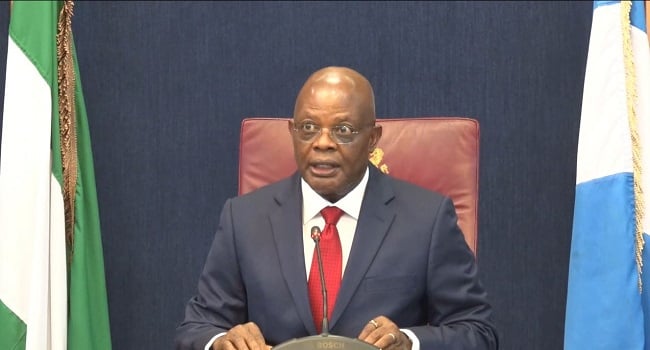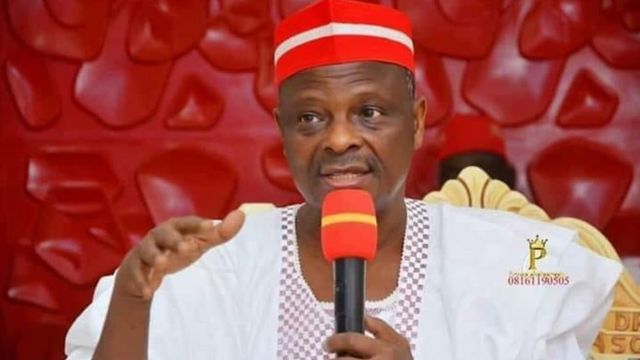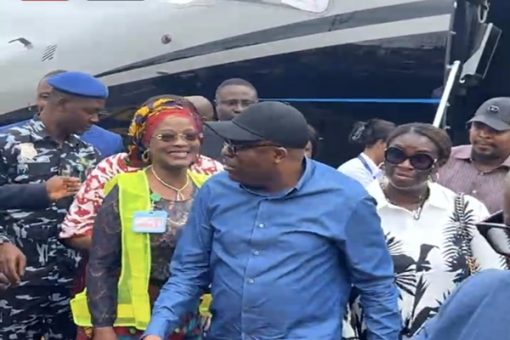The former Administrator of Rivers State, Vice Admiral Ibok-Ete Ibas (retd.), has rejected the decision of the Rivers State House of Assembly to investigate financial transactions during his six-month tenure under emergency rule.
Ibas vacated office on September 17, following the expiration of the emergency rule imposed by President Bola Tinubu. His exit coincided with the reinstatement of Governor Siminalayi Fubara, his deputy, and members of the House of Assembly.
At its first sitting since the suspension was lifted, the Assembly, led by Speaker Martin Amaewhule, resolved to examine the state’s financial activities during the emergency rule. Lawmakers said the inquiry would focus on contract awards and expenditures from the consolidated revenue fund.
Assembly members said the probe aims to clarify how public funds were utilised during the six-month period when the state was under federal control.
Available data analysed by The PUNCH indicates that Rivers State received at least N254.37 billion from the Federation Account Allocation Committee (FAAC) between March and August 2025, during Ibas’ administration.
The figures were derived from National Bureau of Statistics (NBS) records and official documents from FAAC meetings. While NBS data covers up to June, July and August figures were sourced from FAAC proceedings reviewed by the newspaper.
According to the data, Rivers received N44.66bn in March, N44.42bn in April, N42.80bn in May, and N42.30bn in June. For July and August, the state received N38.42bn and N41.76bn respectively, averaging N42.40bn monthly.
If the trend continues in September, total FAAC inflows for seven months could reach N297bn.
Further analysis revealed that the 13 per cent oil derivation was the largest revenue component, accounting for N133.24bn—approximately 52.4 per cent—of the total allocation within the six-month period.
In March alone, Rivers earned N25.29bn from derivation, compared to N5.14bn in statutory allocation. In May, derivation stood at N25.70bn while the statutory allocation was N6.05bn.
Even in June, when derivation dropped to N20.94bn, it remained the highest revenue component, highlighting the state’s reliance on oil revenue.
The state also recorded N26.31bn in deductions for external debt servicing between March and August. Monthly deductions stood at N4.56bn from March to July and dropped to N3.54bn in August.
These deductions represented over 10 per cent of statutory allocations and reduced overall net income before other obligations such as contractual deductions and ecological transfers were factored in.
However, Value Added Tax (VAT) collections helped mitigate the impact of these deductions, contributing about N107.78bn or 42.4 per cent of the total allocations.
Monthly VAT receipts were N18.24bn in March, N21.02bn in April, N14.56bn in May, N19.76bn in June, N17.62bn in July, and N16.58bn in August.
The state also received funds from other sources, including the Electronic Money Transfer Levy, exchange gains, and ecology allocations, which improved its net receipts.
Despite receiving large federal allocations, the Rivers State Government has not yet released its 2025 Budget Implementation Report, a statutory document that outlines how revenues and expenditures are managed.
The absence of this report has raised concerns among civil society groups and residents over transparency and the use of public funds during the emergency administration.
The state had been under emergency rule since March 18, 2025, following a political crisis stemming from a rift between former Governor Nyesom Wike and Governor Fubara. The crisis led President Tinubu to suspend the elected state officials and install Ibas as sole administrator.
President Tinubu justified the action under Section 305 of the 1999 Constitution, citing the need to restore order in the state. The proclamation was published in the Federal Gazette and endorsed by both chambers of the National Assembly on March 20.
However, 11 PDP governors challenged the emergency rule at the Supreme Court under case number SC/CV/329/2025. No updates have been provided on the matter since the filing.
Political tensions in the state eased after a reconciliation between Wike and Fubara, allowing for the conduct of local government elections on August 30. The All Progressives Congress won 20 seats, while the PDP secured three.
Ahead of Fubara’s resumption on September 18, Ibas defended his administration, stating that he executed the mandate given by President Tinubu and stabilised governance in the state during his tenure.
Despite this, civil society organisations and opposition groups have demanded an investigation into the management of public funds under Ibas.
Chairman of the Coalition of Civil Society Organisations in Rivers State, Enefaa Georgewill, said the process that brought Ibas into office was unconstitutional and accused the former administrator of mismanaging public resources.
Georgewill said key infrastructure projects, including the Rivers State House of Assembly Complex, remained abandoned despite the state’s significant revenue inflows.
He called on Governor Fubara to establish a panel of inquiry to audit all federal allocations and internally generated revenue received by the state since March.
Georgewill also urged financial regulatory agencies to investigate the financial activities of the Ibas administration, expressing concern over possible corruption.
Similarly, Emma Obe, spokesperson of the Civil Liberties Organisation in Rivers, described the emergency administration as unconstitutional. He said the 2025 state budget was passed without public engagement, denying citizens the opportunity to scrutinise spending plans.
Obe maintained that any administration that handles public funds must account for its expenditures and warned that legal actions may follow if transparency is not ensured.
Both organisations insisted that the Ibas administration failed to show financial transparency and reiterated calls for a comprehensive public audit of the state’s finances since March.
In response, Ibas rejected the Assembly’s plan to investigate his administration, arguing that the lawmakers lacked the authority to do so since they did not appoint him.
His media aide, Hector Igbikiowubu, told The PUNCH that the Assembly’s efforts were misplaced and suggested that such a probe would indirectly be questioning the authority of President Tinubu and the National Assembly, which oversaw his appointment and tenure.
Igbikiowubu stated that while lawmakers are free to express concerns, probing the administrator equates to probing the federal government.
He described the Assembly’s move as a “fool’s errand,” adding that the administrator acted solely on behalf of the President during the emergency period.
Meanwhile, Governor Fubara has resumed official duties and called for sustained prayers for peace and governance in the state.
Speaking at a thanksgiving service at St. Paul’s Anglican Church in Opobo Town on Sunday, Fubara expressed gratitude for the support he received during the six-month suspension.
He described prayer as a spiritual investment and urged residents to continue praying for his administration as he works to deliver on his mandate.
Fubara also emphasised the need for peace and unity in line with the International Day of Peace, and reiterated his commitment to serving the people of Rivers State.
Credit: The Punch

 BIG STORY1 day ago
BIG STORY1 day ago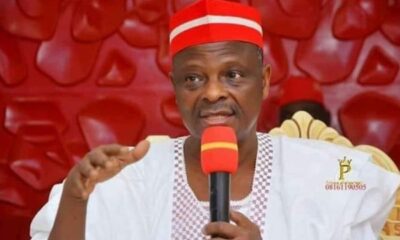
 BIG STORY2 days ago
BIG STORY2 days ago
 BIG STORY3 days ago
BIG STORY3 days ago
 BIG STORY3 days ago
BIG STORY3 days ago
 BIG STORY3 days ago
BIG STORY3 days ago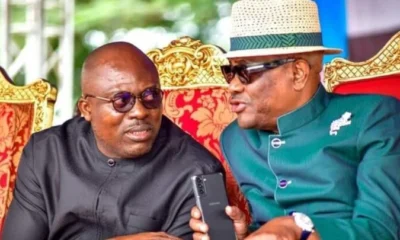
 BIG STORY3 days ago
BIG STORY3 days ago
 BIG STORY4 days ago
BIG STORY4 days ago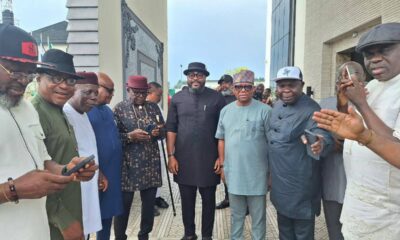
 BIG STORY3 days ago
BIG STORY3 days ago












